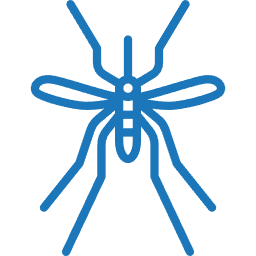
What injections do i need to travel to south america
What Injections Do I Need to Travel to South America?
South America is a continent with a rich history and culture, but it is also home to a number of diseases that can be prevented with vaccinations. Before you travel to South America, it is important to make sure that you are up-to-date on your vaccinations.
The following is a list of the injections that are recommended for travel to South America:
- Hepatitis A
- Hepatitis B
- Typhoid
- Yellow fever
- Rabies
- Polio
- Measles, mumps, and rubella (MMR)
- Tetanus, diphtheria, and pertussis (Tdap)
Hepatitis A
Hepatitis A is a liver infection that is spread through contact with contaminated food or water. Symptoms of hepatitis A include fatigue, nausea, vomiting, abdominal pain, dark urine, and jaundice. There is no specific treatment for hepatitis A, but the symptoms usually resolve within a few weeks.
Hepatitis B
Hepatitis B is a liver infection that is spread through contact with infected blood or bodily fluids. Symptoms of hepatitis B include fatigue, nausea, vomiting, abdominal pain, dark urine, and jaundice. There is no cure for hepatitis B, but there is a vaccine that can prevent infection.
Typhoid
Typhoid is a bacterial infection that is spread through contact with contaminated food or water. Symptoms of typhoid include fever, headache, fatigue, nausea, vomiting, and diarrhea. Typhoid can be treated with antibiotics.
Yellow Fever
Yellow fever is a viral infection that is spread through the bite of an infected mosquito. Symptoms of yellow fever include fever, headache, fatigue, nausea, vomiting, and jaundice. There is no specific treatment for yellow fever, but there is a vaccine that can prevent infection.
Rabies
Rabies is a viral infection that is spread through the bite of an infected animal. Symptoms of rabies include fever, headache, fatigue, nausea, vomiting, and difficulty swallowing. Rabies is fatal if not treated.
Polio
Polio is a viral infection that is spread through contact with contaminated food or water. Symptoms of polio include fever, headache, fatigue, nausea, vomiting, and paralysis. Polio can be prevented with a vaccine.
Measles, Mumps, and Rubella (MMR)
MMR is a vaccine that protects against measles, mumps, and rubella. Measles is a viral infection that can cause fever, rash, cough, runny nose, and conjunctivitis. Mumps is a viral infection that can cause swelling of the salivary glands. Rubella is a viral infection that can cause fever, rash, and joint pain.
Tetanus, Diphtheria, and Pertussis (Tdap)
Tdap is a vaccine that protects against tetanus, diphtheria, and pertussis. Tetanus is a bacterial infection that can cause muscle spasms. Diphtheria is a bacterial infection that can cause difficulty breathing, sore throat, and fever. Pertussis is a bacterial infection that can cause coughing, wheezing, and difficulty breathing.
In addition to the injections listed above, you may also need to take antimalarial medication if you are traveling to a region where malaria is present. Malaria is a parasitic infection that is spread through the bite of an infected mosquito. Symptoms of malaria include fever, chills, sweating, headache, and muscle aches. Malaria can be treated with medication, but it can be fatal if not treated promptly.
It is important to talk to your doctor about which injections and medications you need before you travel to South America. Your doctor can help you assess your risk of infection and recommend the best way to protect yourself.